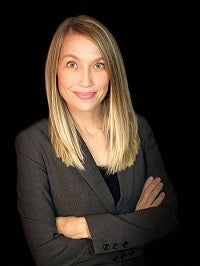The Faculty of Environment is pleased to host the 2021 TD Walter Bean Virtual Public Lecture featuring Dr. Amber Wutich, President’s Professor of Anthropology and Director of the Center for Global Health at Arizona State University.
In her talk "MAD Water: Mobile, Adaptive & Decentralized Infrastructure for the Climate Change Era", Dr. Wutich will explore one of the greatest threats facing humans in the coming century - water insecurity.
While climate change is projected to destroy water systems, displace populations, and intensify water inequalities around the world, for many communities, the imagined dystopian future of severe water shortages has already arrived—shaped not so much by lack of water, but by aging infrastructure, underfunded utilities, social exclusion, politicized commodification, and environmental racism.
Dr. Wutich will illustrate how the missing key to solving water insecurity is hidden in the social infrastructure all around us and how social infrastructure—informal economies, social networks, and cultural norms—can be leveraged to distribute water in fair and just ways.
Date: Wednesday,
December
8,
2021
6:00 PM
-
7:30
PM
Location: Zoom,
link
will
be
provided
to
registrants.
REGISTER FOR TD WALTER BEAN 2021 LECTURE
About the 2021 TD Walter Bean Professor

TD Walter Bean Background Information
The TD Walter Bean Professorship in Environment was founded in 1992 by the late Walter Bean, who was president of Waterloo Trust until its merger with Canada Trust in 1968. Since 1994, the professorship has promoted hands-on learning and a focus on youth, education and the environment. Formerly a partnership between the University of Waterloo's faculties of Engineering, Environment and Science, as of 2019, the Faculty of Environment will be the host of the TD Walter Bean Professorship in Environment.
Many of us are concerned about the world the next generation will inherit. That’s why our partners at TD Canada Trust, are committed to help create a more vibrant planet by continuing to grow and enhance green spaces for everyone to use. The Faculty of Environment is proud to use our unique position as a leading teaching and research institute for the environment to create sustainable solutions needed to address the complex challenges facing our world to bring you the TD Walter Bean Professorship and Public Lectures.
Thanks to generous support and sponsorship from TD Canada Trust, the Faculty of Environment continues its mission to raise awareness for global sustainability and offers an opportunity for our broader community including all Waterloo alumni, students, community members, and high school students from across Ontario to learn and understand how their decisions and actions affect the environment. With each lecture highlighting one or more of the United Nations' Sustainable Development goals, attendees are able to build the knowledge and skills necessary to address and unpack complex environmental issues.